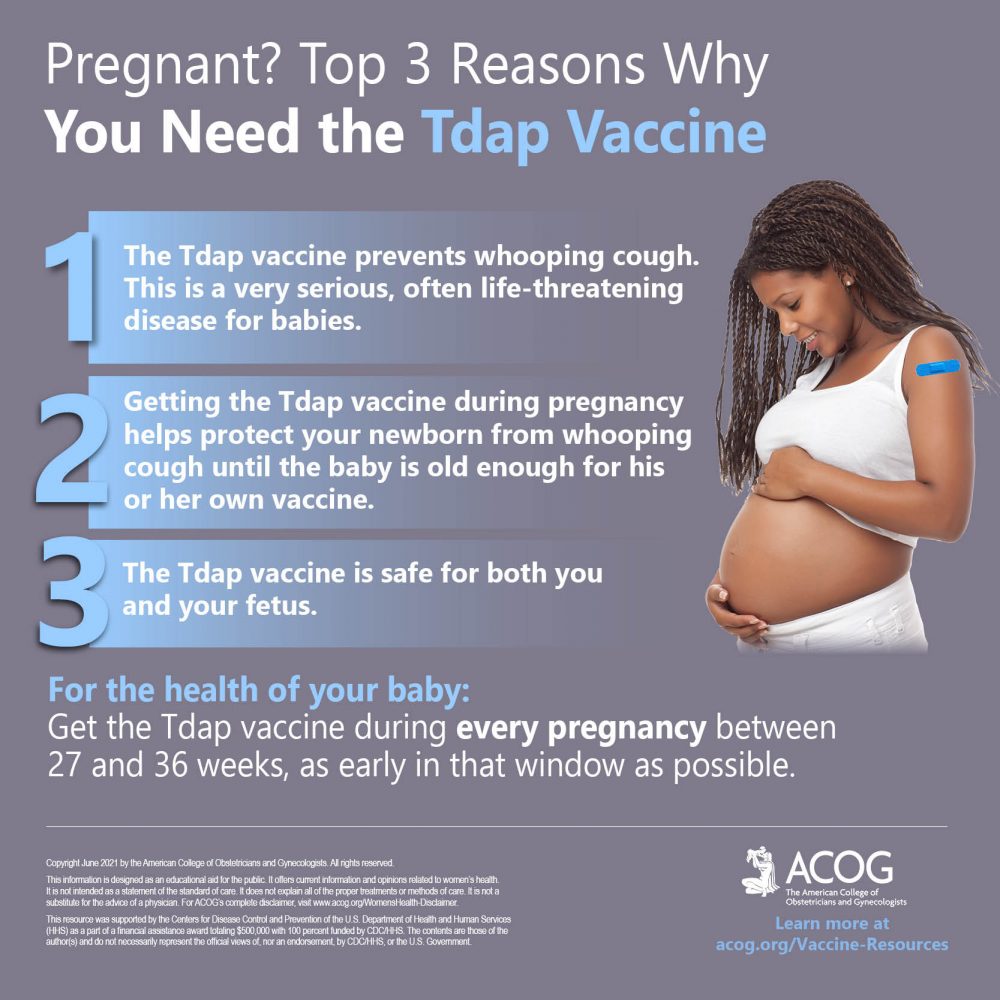Whooping cough (also known as pertussis) is a serious and highly contagious bacterial infection that can impact the lungs. While most individuals can fight whooping cough on their own, vulnerable populations such as infants and the elderly are at increased risk of hospitalization and death. There is a vaccine available called Tdap that helps protect against tetanus, diphtheria, and pertussis, but unfortunately, newborns are not old enough to receive this vaccine until they are approximately 2 months of age. Because of the risk of infection for newborns, Tdap vaccination is recommended for all pregnant patients in their third trimester.
Extensive research has shown that receiving this vaccine in the third trimester of pregnancy will maximize the amount of antibodies that will pass through the placenta to your baby. These antibodies will then go directly to the baby to help offer them protection against this illness until your newborn is old enough to receive their immunization at their pediatrician’s office. Tdap vaccination during pregnancy can significantly lower your baby’s risk of pertussis infection by almost 78%. If you decide to breastfeed after the birth of your newborn, this can also provide additional immune system support for your infant.
Tdap vaccination should be given in each pregnancy and is strongly recommended by the American College of Obstetricians and Gynecologists, the Centers for Disease Control, the American Academy of Pediatrics, and many other health organizations. Family members over 18 and caregivers who will be around your newborn are also advised to receive this vaccination at least once as an adult to help your baby avoid exposure to pertussis. This practice is called “cocooning” and helps surround your baby with an extra way to avoid getting sick.
Side effects of this vaccine are generally mild and include arm soreness, redness and swelling at the injection site, fatigue, and low-grade fever that typically resolves in 24-48 hours. Severe side effects are extremely rare. The vaccine does not contain any live bacteria, so there is no chance of getting pertussis from the injection itself. It is available at the office so you can conveniently receive it from our skilled nursing staff.
We encourage you and your family members to consider this important vaccine during your pregnancy and as always, we are happy to discuss and give more information at your prenatal visit!
